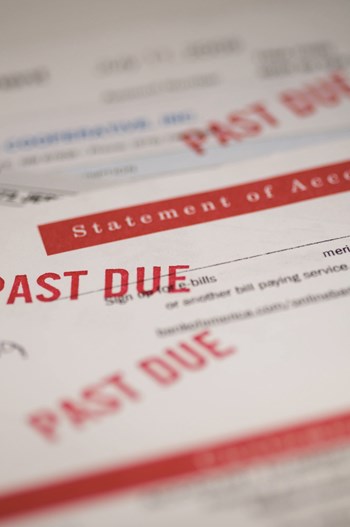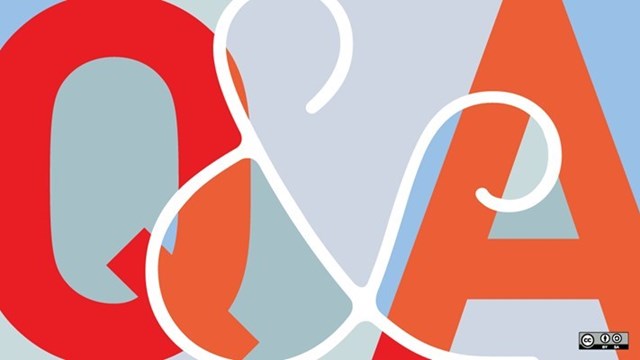
One of the most difficult issues for board members and residents of co-ops, condominiums, and HOAs is that of arrears. The problem poses practical, procedural and ethical issues, and can ultimately lead to neglected maintenance, delayed projects, financial insolvency – even legal repercussions. Residents may go into arrears on monthly maintenance or common charges for many reasons. The question is how to manage the problem effectively and efficiently, without undue embarrassment or acrimony.
A Matter of Responsibility
The most obvious and consistent responsibility one has as a member of a common interest community is not to serve on the board or a committee, or to act as a watchdog for one’s neighbors, but rather to pay one’s fair share of the community expenses—known as maintenance in a co-op and common charges in a condominium or HOA. This obligation is contractual. As a cooperator or member of an association you enter into it when you buy your unit. It is of vital importance, as the operation of the community depends on your timely payments to make their payments, for everything from cleaning supplies to underlying mortgage payments or debt payments on other community financing. Regardless of the type of ownership, the structure is non-profit and every penny collected is accounted for and used to maintain its financial health.
Frank Flynn, Managing Partner/Owner of the Flynn Law Group in Boston, says, “It comes down to fiduciary duties. Board members or trustees are also required to abide by their fiduciary duties—things like self-dealing, engaging in fair practices, and maintaining an ethical obligation to the condominium trust. Board members must uphold the trust amendments and condominium documents. They must abide by those documents they are supposed to uphold. Timely payment of obligations falls under their fiduciary duties. If they are in violation, they can be removed. They must be in compliance of all trust provisions. It’s a real conflict if they are delinquent. In Massachusetts, after 60 days we would have to bring notices and start a foreclosure proceeding.”
The extent to which non-payment might affect the ability of the entire community to meet its obligations differs with the size of the association or corporation. Clearly a $1,000 monthly obligation is more critical in a 20-unit property than in a 250- or 2,000-unit property, but nevertheless, arrearages have a negative effect and can pile up. Ultimately, they can have a negative effect on resale prices if there are too many for too long, as buyers often look to that information as an indication of what their potential investment’s financial health looks like.
Reasons for Delinquency
No one buys into co-op, condo or HOA with the intent of defaulting. The purchase decision is saturated with tests on all sides to insure financial success. The buyer wants to feel comfortable knowing they can afford the monthly obligation. The board of the co-op or condo wants to feel secure knowing they have a dependable member and the lender providing the financing for the acquisition of the unit wants to avoid foreclosure, a costly and painful experience for everyone involved. The assumption of monthly financial obligation in the form of maintenance or common area charges is made carefully by all parties and with the best of intentions.
But life doesn’t always turn out the way we plan. Cooperators or condominium owners may fall into arrears for any number of reasons. Generally, these reasons fall into two categories. We can call these two categories with-intent and without-intent.
Most cases fall into the category of without-intent. People lose their jobs. While many corporations and associations require members to have a financial cushion in place when purchasing their unit, unemployment can continue for long periods of time as was evident throughout the last recession. A resident’s ‘cushion’ can deplete long before new employment is found. A neighbor who has been a member in good standing and paid consistently for many, many years can now become a drag on the entire building.
Also, people get sick. Again, a sizeable nest egg can be consumed in a short period of time when serious illness occurs. Medical insurance doesn’t always cover everything and a resident may be faced with the choice of paying for life-saving treatment or paying the maintenance. And while these crises are going on, life continues to happen. College tuitions still have to be paid, outside help may be necessary on a round-the-clock basis, and we still have to eat.
Arrearages occurring with intent are less common, but they do happen. Usually, they revolve around issues that may come up between the individual cooperator or condominium owner and the corporation or association. Say, for instance, that a resident has an ongoing problem with a neighbor involving noise. The co-op or condo board may find it impossible to resolve the issue with the resident causing the problem. The affected resident may choose to pressure the board to resolve the problem by withholding monthly charges and placing them in a bank account held to the benefit of the corporation or association until the dispute is resolved. Clearly, while the money is being held for the benefit of the association or corporation, it isn’t being paid into the common accounts and can’t be used to pay the bills. It’s still an arrearage. It should be noted that under the laws governing cooperative corporations in New York State, this action is illegal. A cooperator cannot withhold payment in this manner, though many do it all too frequently.
“Fiduciary duty is part of Massachusetts law,” says Flynn. “The condominium statute is very strong with regards to what can happen to unit owners resulting from default on common charges. The provisions in the statutes are that you cannot withhold condo fees. You cannot set off payment for a dispute. You have to bring a separate case.”
When Arrearages Involve a Board Member
The legal, procedural, and ethical considerations of the effect of arrearages become even more sensitive when it involves a member of a co-op or condo’s board of directors. But is there any specific legal treatment or procedure for board member arrearages? The answer is a simple no, unless stipulated otherwise by the bylaws of the corporation or association.
Deborah B. Koplovitz, a community law attorney with Anderson Kill in New York City, says, “Legally, people have an obligation to pay their monthly charges under the co-op or condo’s governing documents. Procedurally, most co-ops have a policy in place that after a month, the managing agent sends a warning letter. Then if there’s no response, it goes to legal for formal action.” She explains that there’s no special policy in most cases for board members. “All boards should treat everyone the same. Ethically, people do get into trouble and it happens, and it makes sense for boards to consider that when people go into arrears. Maybe there is a way to work things out.”
Mark Hakim, of counsel at the law firm of Schwartz Sladkus Reich Greenberg Atlas LLP in New York City, says, “You have to look at the bylaws to determine what if any rights the corporation or association might have with respect to dealing with these issues. In older buildings, it is unlikely that you will find language dealing specifically with board member arrearages unless the building has updated its documents. Unfortunately, it wasn’t considered at the time those offering plans and documents were drafted. Today, with new plans or revisions to the bylaws, when we draft them, we take these issues into account.”
What’s a Board to Do?
Stephen Boonshoft, a partner in the real estate department of New York City law firm Robinson Brog, Leinwand, Greene, Genovese & Gluck, says, “If a shareholder is a board member and in arrears, and the bylaws don’t give the board any power to deal with the situation, the board can ask the member to recuse him- or herself. If the board member refuses, the board has no recourse. Generally, the board member can only be removed by the other shareholders.”
Hakim always recommends to his clients “that the board have a specific policy dealing with arrears as it relates to board members including that no other board member should be addressing it directly with the board member in arrears. It is best to have any such issue addressed through management and counsel.”
Another option open to boards — short of removing the board member —
is removing the board member from a specific voting role such as president or treasurer to prevent the board member in arrears from taking part in critical decision making; or to set up subcommittees to vote on certain issues and not permit that member to serve on said committee.
Campaign Dirty Tricks
Another question is whether a board can prevent a current board member in arrears from running for re-election or a member in arrears from running for the board. There are ethical questions as to whether a board can ‘out’ a candidate for non-payment during the election process or even whether the law permits that information, which is generally treated as confidential and fiduciary to the board, from being released. “A person has to be in good standing to run for the board in a co-op in Massachusetts” says Flynn, “but I haven’t seen that in any condo trust document. Flynn says he would recommend the following to a board seeking to update their documents. The bylaws should include language that, “trustees must abide by their fiduciary duties,” which would include keeping current on common charges, and, “that a member should be in good standing to run for the board.”
Perhaps the most important thing to keep in mind in dealing with these very thorny issues is that, as Koplovitz says, “a cooperative is just that, a place where people cooperate with each other.” The same can be said for condominiums. Arrearage situations can be difficult for everyone, board members and regular members alike. Imagine how uncomfortable that elevator ride can become. While the financial health of the community must be paramount, keep in mind that whoever it is, the owner didn’t go into arrears lightly
AJ Sidransky is a staff writer at New England Condominium and a published novelist.






Leave a Comment